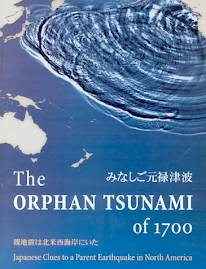
Sunday, November 23, 2008
We need to fix the way we count in English, among other things
At least for pedagogical purposes, we should change the way numbers are read aloud.
I mean, what is eleven?
What is nineteen? nine plus ten?
What is twenty? two and tens?
What on Earth is that?
In, for example, Chinese and Japanese, numbers are read aloud in the following way.
one, two, three, four, five, six, seven, eight, nine,
ten
ten-one, ten-two, ten-three, ten-four, ten-five, ten-six, ten-seven, ten-eight, ten-nine,
two tens
two tens-one, two tens-two, two tens-three, two tens-four, two tens-five, two tens-six, two tens-seven, two tens-eight, two tens-nine,
three tens
The absurdity in the way we read numbers aloud in English was exceeded only by the way in which numbers were read aloud in French. For example, "81" was read aloud as "four twenties one". Huh? Left over from Babylonian mathematics? But then, the French don't pronounce the last half of most of their words... but you have to remember how the unpronounced parts are spelled because if the next word begins in a vowel, you have to pronounce the otherwise unpronounced preceding consonant. It would be as if the English word "an" were always pronounced "a", except if the next word begins with a vowel, in which case suddenly you have to remember what unpronounced consonant is contained in the word "a".
There aren't spelling contests in many languages because the irregularities are so few. That English spelling contests are such a big deal says something about English spelling... and it is not good.
An Englishman apparently once made a comment about Sanskrit and how it was so strange that a letter at the end of a word could affect the pronunciation of letters far preceding it. The response was, "Oh, you mean like in English?"
I mean, what is eleven?
What is nineteen? nine plus ten?
What is twenty? two and tens?
What on Earth is that?
In, for example, Chinese and Japanese, numbers are read aloud in the following way.
one, two, three, four, five, six, seven, eight, nine,
ten
ten-one, ten-two, ten-three, ten-four, ten-five, ten-six, ten-seven, ten-eight, ten-nine,
two tens
two tens-one, two tens-two, two tens-three, two tens-four, two tens-five, two tens-six, two tens-seven, two tens-eight, two tens-nine,
three tens
The absurdity in the way we read numbers aloud in English was exceeded only by the way in which numbers were read aloud in French. For example, "81" was read aloud as "four twenties one". Huh? Left over from Babylonian mathematics? But then, the French don't pronounce the last half of most of their words... but you have to remember how the unpronounced parts are spelled because if the next word begins in a vowel, you have to pronounce the otherwise unpronounced preceding consonant. It would be as if the English word "an" were always pronounced "a", except if the next word begins with a vowel, in which case suddenly you have to remember what unpronounced consonant is contained in the word "a".
There aren't spelling contests in many languages because the irregularities are so few. That English spelling contests are such a big deal says something about English spelling... and it is not good.
An Englishman apparently once made a comment about Sanskrit and how it was so strange that a letter at the end of a word could affect the pronunciation of letters far preceding it. The response was, "Oh, you mean like in English?"
Subscribe to:
Post Comments (Atom)

No comments:
Post a Comment